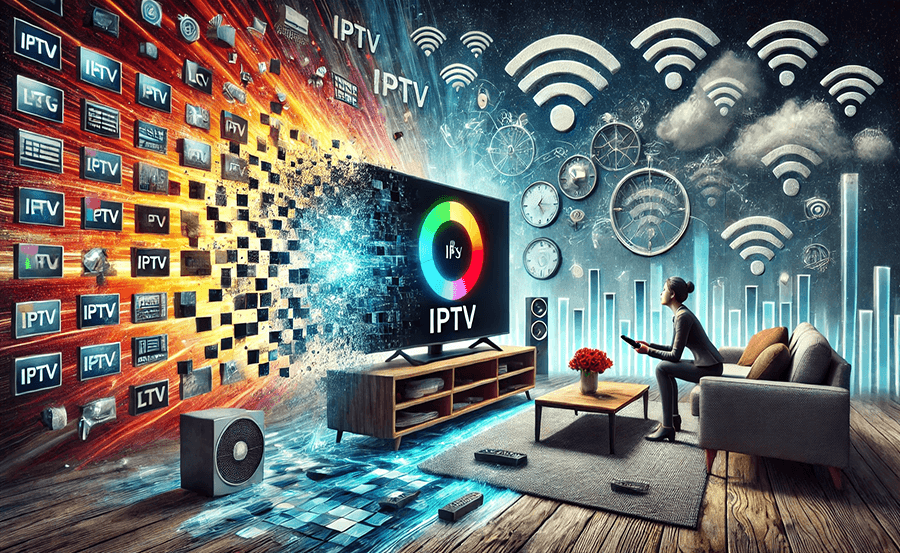IPTV Streaming: A Comprehensive Guide to Revolutionizing Content Delivery
The way people consume television and video content has evolved dramatically over the years, with IPTV (Internet Protocol Television) emerging as a game-changing technology. By delivering TV programs and on-demand video content over the internet, IPTV offers unmatched flexibility, convenience, and personalization. This article delves deep into the world of IPTV streaming, exploring its features, benefits, types, and considerations for users and providers.
What is IPTV Streaming?
IPTV, or Internet Protocol Television, is a technology that streams television and multimedia content using an internet connection instead of traditional cable or satellite formats. By utilizing IP (Internet Protocol), IPTV provides a more flexible and efficient method of content delivery, allowing users to watch their favorite shows, live events, and on-demand videos on multiple devices.
Unlike traditional broadcasting, where channels are pushed to viewers regardless of their preferences, IPTV operates on a “pull” model. Users can select specific content they want to watch, enabling a more tailored viewing experience.
Types of IPTV Services
IPTV services can be broadly categorized into three main types:
- Live TV Streaming
Similar to traditional TV broadcasting, live IPTV streams channels in real time. This is popular for sports events, news, and live shows. IPTV allows users to stream live content on various devices without needing a cable box or satellite dish. - Video on Demand (VOD)
VOD enables viewers to choose from a library of pre-recorded content, such as movies, TV shows, and documentaries. With VOD, users have complete control over what they watch and when they watch it. - Time-Shifted Media
Time-shifted IPTV services let viewers watch programs they missed earlier. This includes “catch-up TV,” where users can access recently aired episodes, and the ability to pause, rewind, or fast-forward live streams.
How IPTV Works
IPTV relies on an internet connection and a subscription to a service provider. Here’s a breakdown of how IPTV works:
- Content Acquisition
IPTV providers acquire TV channels, movies, or other multimedia content from broadcasters or production companies. - Content Storage and Management
Content is stored on servers and optimized for internet streaming. Advanced compression technologies ensure smooth playback without requiring excessive bandwidth. - Delivery to Users
The content is delivered to users via a dedicated app or compatible device. Users can access the service on smart TVs, smartphones, tablets, PCs, or specialized IPTV boxes. - Viewer Interaction
Unlike traditional TV, IPTV allows for interactive features such as program guides, recommendations, and customizable playlists.
Benefits of IPTV Streaming
- Flexibility and Convenience
IPTV streaming eliminates the need for bulky equipment like satellite dishes or cable boxes. Users can stream content on any device with an internet connection. - Personalized Viewing
With VOD and customizable content options, IPTV ensures viewers can watch what they want, when they want, creating a highly personalized experience. - Cost-Effective
IPTV often costs less than traditional cable or satellite subscriptions, especially with bundled offers or pay-as-you-go plans. - High-Quality Streaming
Many IPTV providers offer HD and 4K resolution streams, ensuring a premium viewing experience. - Global Accessibility
IPTV services can be accessed from virtually anywhere in the world, making it an excellent option for travelers or expatriates who want to watch content from their home country.
Challenges and Considerations
While IPTV offers numerous benefits, there are some challenges users and providers must consider:
- Internet Dependency
A stable and high-speed internet connection is essential for uninterrupted IPTV streaming. Poor connectivity can lead to buffering or degraded video quality. - Legal and Licensing Issues
Some IPTV providers may offer unauthorized content, leading to legal repercussions. It’s crucial to choose legitimate providers with proper licensing agreements. - Device Compatibility
While IPTV works on most modern devices, some older models may not support IPTV apps or streaming protocols. - Bandwidth Usage
Streaming IPTV can consume significant bandwidth, which might be a concern for users with data caps.
Choosing an IPTV Service
With countless IPTV providers in the market, selecting the right one can be overwhelming. Here are key factors to consider:
- Content Library
Look for a service with a diverse range of channels, VOD options, and genres that cater to your preferences. - Streaming Quality
Ensure the provider offers HD or 4K streaming, depending on your device capabilities. - Reliability
Opt for a provider with a reputation for consistent uptime and minimal buffering. - Subscription Plans
Compare pricing options to find a plan that fits your budget without compromising quality. - User Support
A reliable IPTV service should offer prompt customer support to address technical or subscription-related issues.
The Future of IPTV Streaming

The IPTV market is expected to grow significantly in the coming years, driven by advancements in technology and increasing consumer demand for flexible content consumption. Trends shaping the future of IPTV include:
- AI and Personalization
Artificial intelligence will play a larger role in recommending content based on user preferences and viewing habits. - 5G Integration
The rollout of 5G networks will enhance streaming quality, enabling seamless playback of ultra-high-definition content. - Interactive Features
IPTV platforms will increasingly incorporate features like live polls, chat rooms, and social media integration for a more engaging experience. - Global Expansion
As internet access improves in developing regions, IPTV will become more accessible to a wider audience.
Conclusion
IPTV streaming has transformed the way we consume television and video content, offering unmatched flexibility, personalization, and quality. Whether you’re a viewer looking for a tailored entertainment experience or a provider seeking to enter the IPTV market, understanding the fundamentals of IPTV is essential.
By embracing the latest technology, focusing on high-quality content delivery, and ensuring legal compliance, IPTV providers can stay ahead in this dynamic and competitive industry. For viewers, IPTV opens up a world of possibilities, enabling them to enjoy their favorite shows and movies anytime, anywhere.
